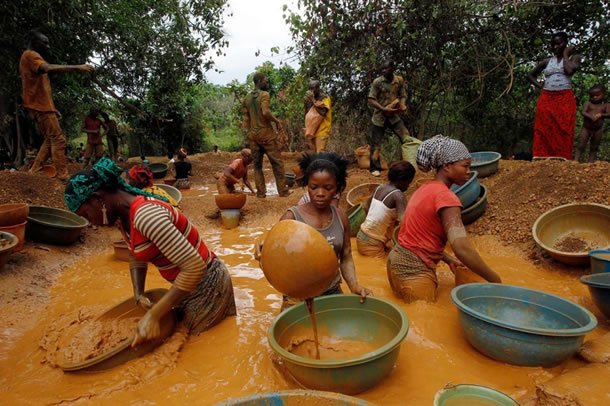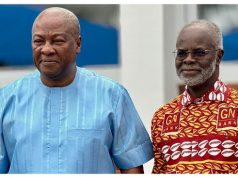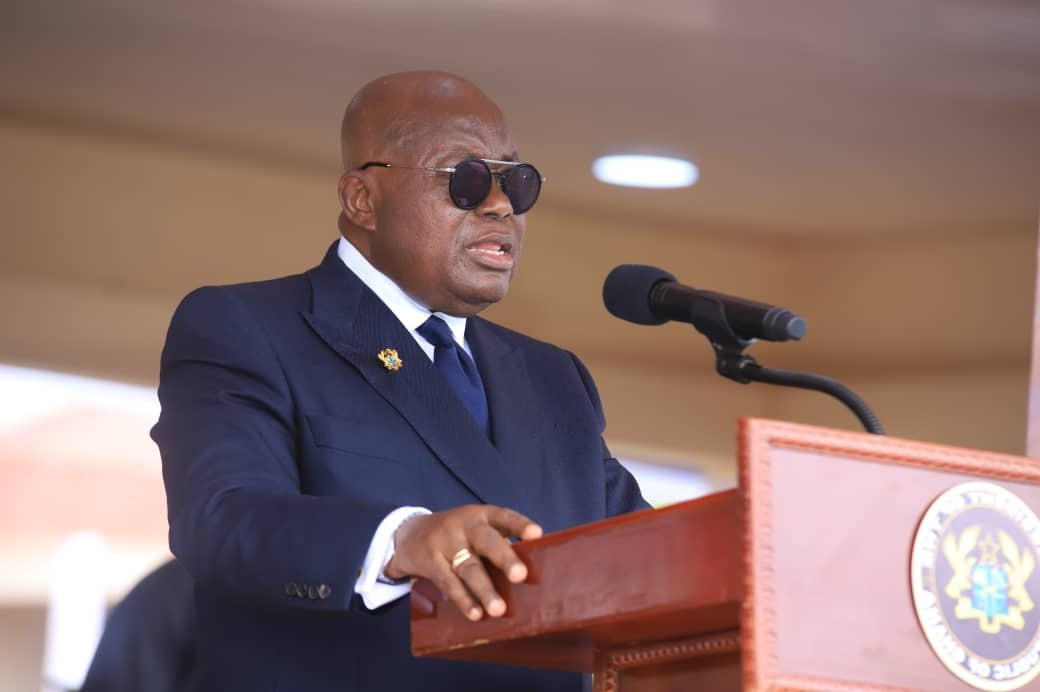The Ghana National Association of Small Scale Miners has described calls for a total ban on small-scale mining as a lazy approach to dealing with the devastating effects of galamsey on the environment.
They have expressed misgivings about how media reportage has lumped both small-scale mining to illegal miners popularly referred to as ‘galamsey’ together to wreck havoc on the environment.
According to them, the solution to illegal mining must start with drawing a distinction between certified and illegal miners engaged in direct pollution of the environment and not an outright ban.
The Chief Executive of the Minerals Commission, Dr Toni Aubynn, last Thursday admitted that more than 1,000 small-scale mining companies currently operating in Ghana have not been ratified by Parliament.
He said all the companies have not met the constitutional requirements to have their licenses ratified by the legislative body.
Article 268 of the 1992 Constitution states that “Any transaction, contract or undertaking involving the grant of a right or concession by or on behalf of any person including the Government of Ghana, to any other person or body of persons howsoever described, for the exploitation of any mineral, water or other natural resource of Ghana made or entered into after the coming into force of this Constitution shall be subject to ratification by Parliament.”

There is a historic national anger and mobilisation against the menace if illegal mining.
The involvement of Chinese in the illegal activity appears to have exacerbated the problem.
The Ghana Water Company had made a bleak projection that the country may be forced to import water for consumption in the next decade if the current rate of pollution of water sources continues.
This frightening assessment appears to have jolted many Ghanaians into action with the media organisations leading the campaign to end galamsey in Ghana.
Attempts have been made to draw a distinction between illegal mining and small-scale mining which is legal because the operators have obtained licenses from the Minerals Commission and the Environmental Protection Agency and signed by the minister.

But speaking at a press conference in Kumasi Tuesday, the miners who claim to have acquired licenses and are operating in an environmentally friendly manner want government to form alliances with them and encourage good mining practices.
The Director of the Association, Emmanuel Yirenkyi Antwi, said the small-scale miners produce a third of the country’s gold and cannot be banned.
“Anyone who tries to stop small-scale mining will do Ghana no good…those who are calling for a total ban should just halt it because it is a lazy man’s approach. The best thing to do about this as a serious country is to find the median,” he said.
The National General Secretary of the Association, Godwin Armah told Luv News attempts to team up previously with the National Security to flush out those mining illegally in water bodies did not get support.
“In the past, it has been difficult as we don’t get the support that we are getting now from the media. We have caused the arrest of a lot of dredgers but we can’t prosecute them.
“There is no sense of fear or deterrents to the offenders so they do as they please. Now that there is visibility in the media with everyone in support, we will invite in everything we do,” he added.
Meanwhile, government in its determination to stop illegal mining says it will look for alternatives for those engaged in the act, the deputy Lands and Natural Resources Minister, Benito Owusu-Bio, said.
He said government will engage authorities of the Great Consolidated Diamonds Limited in Akwatia to employ some of the illegal miners there who will be kicked out of business soon.
Mr Owusu-Bio made the remarks after his tour of the Diamond City of Akwatia, after angry galamsey operators there accused government of trying to deny them of their livelihood.








